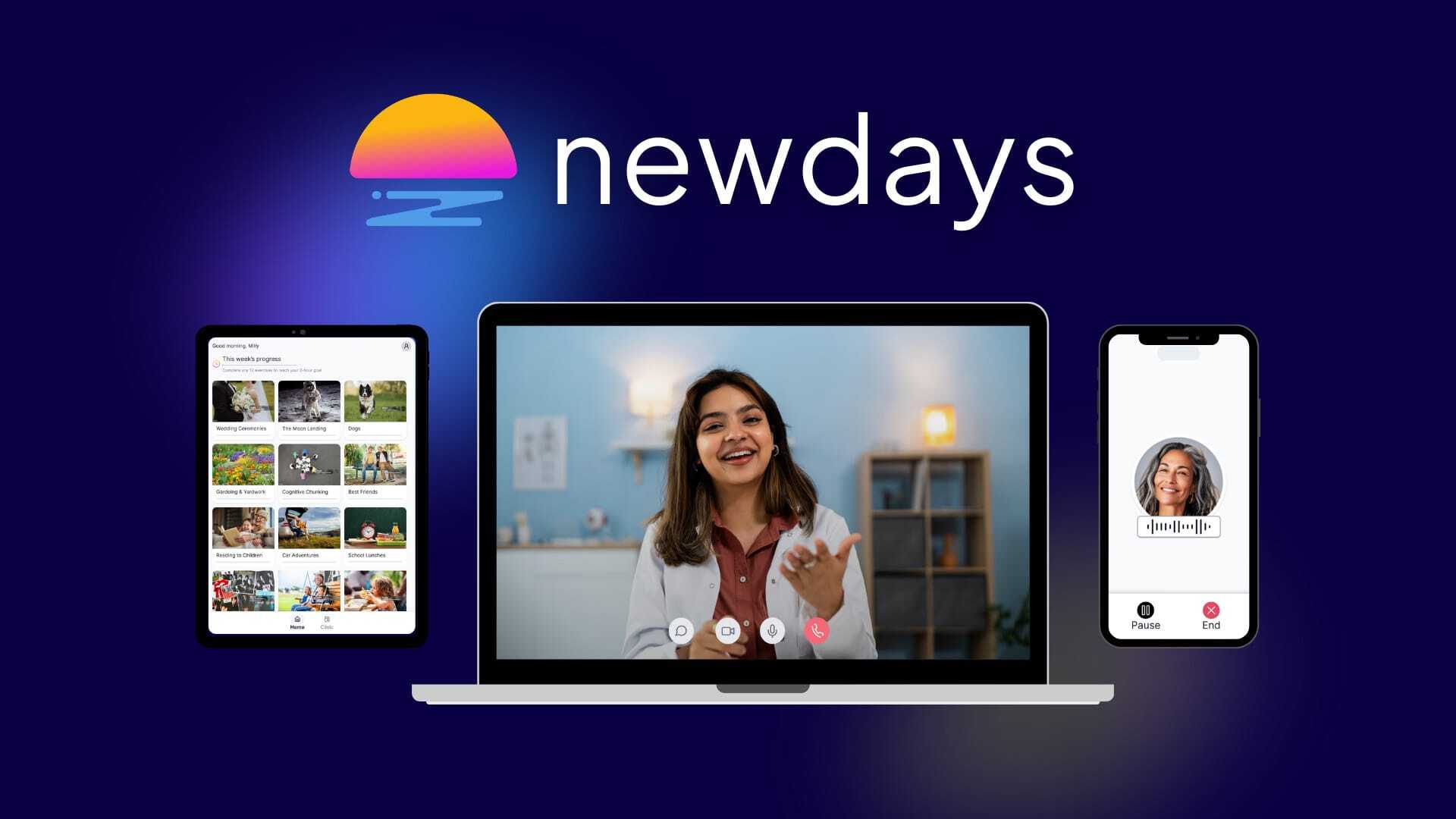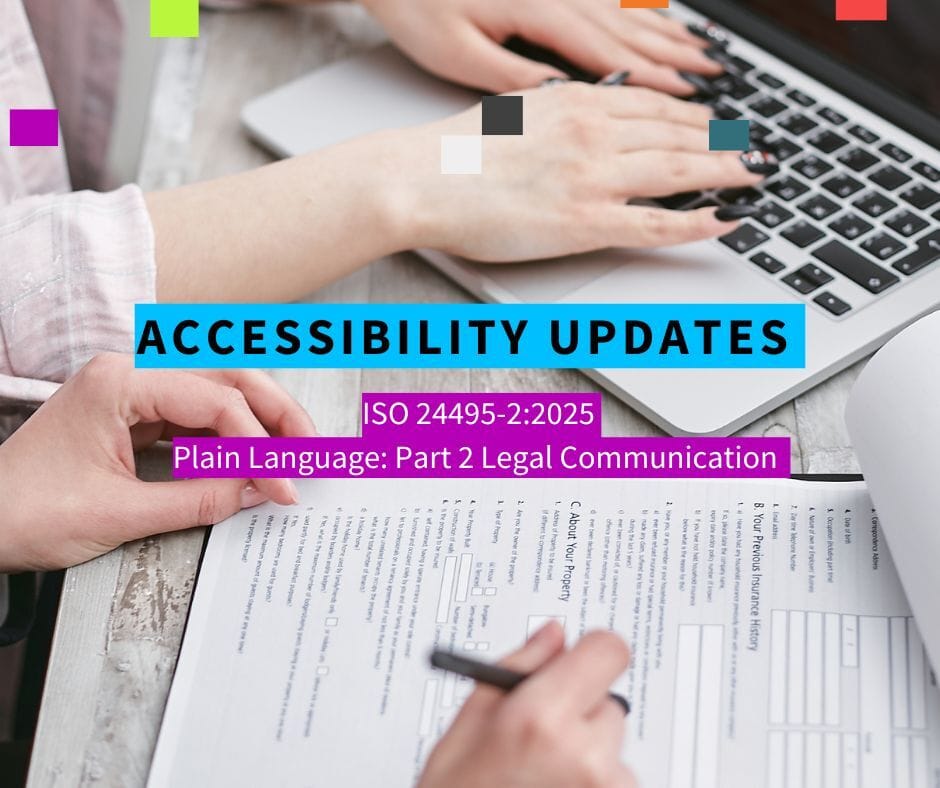The abilityNEWS Daily
The Big Story

Can AI Really Hold Back Dementia?
A Seattle startup claims daily chats with its chatbot can hold back decline. The science says otherwise: human voices help, but replacing care with code risks selling false hope.
As always with tech, the promise is big.
Seattle startup NewDays has raised US$7 million to scale “Sunny”. This is an AI companion which ‘chats’ to people who have cognitive impairment. Clinicians check in every few weeks. It’s priced like a consumer app (US$99/month for the AI “homework,” clinical telehealth billed separately) and it’s already live in parts of the U.S.
The pitch is seductive: daily cognitive stimulation without waiting lists, delivered on a phone.
So—snake oil or substance? The evidence NewDays is real: but nuanced.
A well-run trial (I-CONECT) did find frequent, human-led video conversations improved some cognitive measures for socially isolated adults 75+ with normal cognition or mild cognitive impairment but, critically, not dementia.
It’s promising, but this intervention actually used trained human conversationalists, not a chatbot. Extrapolating those gains to an AI agent remains unproven.
Broader research shows modest benefits from computerised training. Effects are typically small and depend on who’s doing it, how often, and what’s being measured. None of this replaces human care.
The moral?
Regulation matters. NewDays is marketing Sunny in the US as a consumer subscription with clinician oversight, not a FDA-cleared medical device. In Australia, any tool advertised to “treat” or “alleviate” disease would need to be regulated by the TGA.
Our take: Sunny is not a replacement for human intervention. While it might add structured practice between real clinical visits, we’ll be waiting for the company to publishes peer-reviewed results for its AI-led program.
Not just hope.
The Briefing

Image courtesy Centre for Accessibility Australia
Speaking clearly
by Centre For Accessibility Australia
The International Organization for Standardization (sic) does good, important work. Anything that makes legal information clearer is important and to be welcomed. That's why it's good the IOS has just published guidelines and techniques to help ensure readers can readily understand legal communication. What a pity, though, that we can't just call it "Part 2 of the Plain English Law Guide". Instead the reference is: ISO 24495-2:2025 Plain language Part 2: Legal communication, which follows ISO 24495-1 Part 1: Governing principles and guidelines.
Critical Pathways – Ensuring Digital Accessibility for People with Disability Facing Domestic Violence project commencement – EOI open for free website accessibility audits
by Centre For Accessibility Australia
Centre for Accessibility Australia has launched a national project to evaluate how domestic violence services support people with disability online. Organisations can express interest in digital reviews aimed at improving safety in critical online environments.
Review of a Legislative Framework to Regulate Restrictive Practices
by People with Disability Australia
People with Disability Australia has submitted a response to the NSW review on legislation regulating restrictive practices affecting disabled people. The organisation demands a clear legal path towards full elimination and stronger safeguards centred on human rights and supported decision-making.
New APO training scholarships support disability sector reform in Tasmania
by National Disability Services
NDS and the Tasmanian Senior Practitioner are funding training scholarships to enhance capability among Appointed Program Officers in disability services. The initiative supports reforms aimed at promoting consistent and respectful practice across the state's disability support sector.
Lotterywest Storytelling Shoot
by Down Syndrome Australia
Down Syndrome WA has received an $11,000 Lotterywest grant to enhance its community storytelling and outreach efforts. The funding helps share lived experiences and supports greater inclusion for people with Down syndrome across Western Australia.
You’re invited to our webinar “The impact of disability on mental health”
by Mental Health Australia
People with disabilities face significantly higher rates of mental distress, yet their experiences are often overlooked in mainstream conversations. PDA is hosting a webinar on Wednesday 1 October (during Mental Health Awareness Month) to explore this critical intersection and support the community. The webinar panel will include lived experience, professionals within the counselling and mental health fields, researchers and advocates.

Mental Health (courtesy PWD)
The Wrap
Thriving Kids and the NDIS: getting the balance right
by Newcastle Herald
The Australian government has proposed a program, Thriving Kids, that would place some supports for children with mild to moderate developmental needs in mainstream settings. The intent is to keep the NDIS focused on people with significant and permanent disability while strengthening supports that are often better delivered in universal services. John Cleary says that done well this approach can improve the scheme.
Labor flags NDIS concerns in push for gender pay rise delay
by The Australian
The Albanese government is seeking to delay the start of phased in pay rises of up to 35 per cent for 175,000 low-paid workers in female-dominated sectors until at least next July, disputing a Fair Work finding that wage increases for disability support workers would not require significant extra NDIS funding.
Steve Waugh Foundation Grant Program (Australia)
by Steve Waugh Foundation
Applicants are now invited to submit applications for its Steve Waugh Foundation Grant Program to support those with the rarest diseases in Australia, especially those ineligible for support from other organisations. Conditions include having made an application for government funding assistance for the requested item, e.g. NDIS – with documented evidence or NDIS approval or decline.
Pegasus celebrates 50 years of giving wings to children with disability
by Region Media
A story about Jo, who is a passionate public advocate for the transformative work of Pegasus’s riding programs, which see participants build confidence and skills through the powerful connection between horse and human.
Charity devastated following break-in
by Latrobe Valley Express
Staff at Life Skills Victoria, an NDIS-funded organisation discovered burglars ransacked the place and stealing many essential items. More than $20,000 worth of equipment, including laptops, food, and money for programs displaced, leaving the small charity clinging to whatever they have left, and leaving members stressed and disheartened.
The Diary

